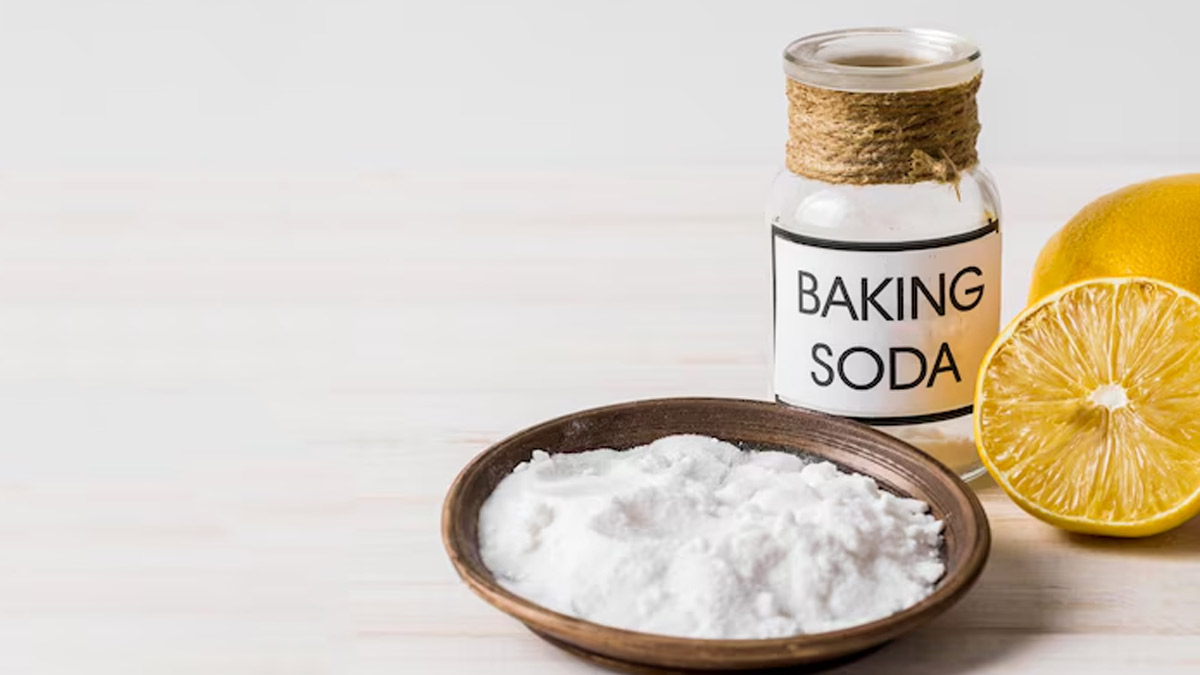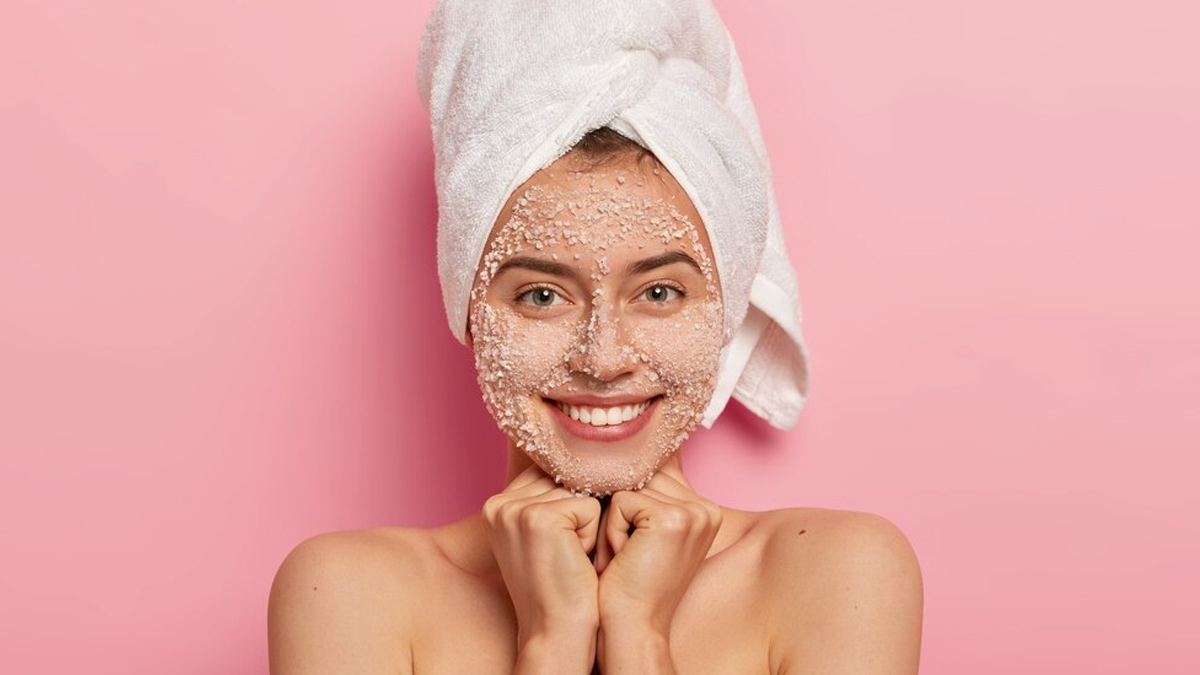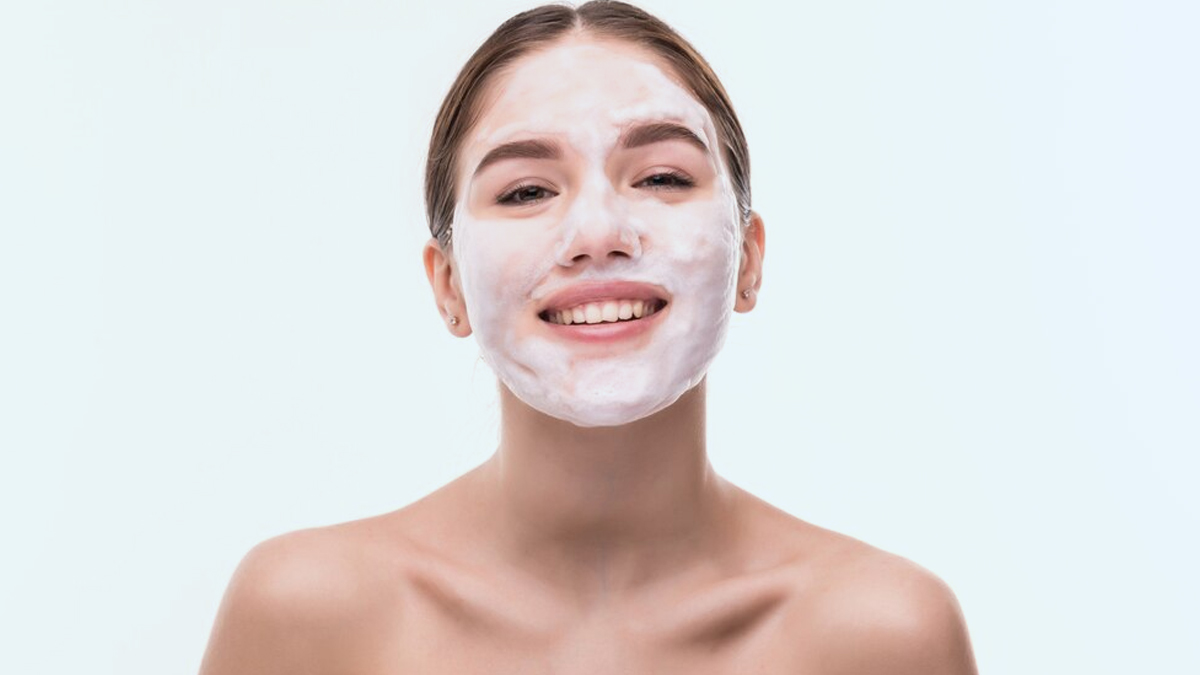
Are you constantly bothered by acne breakouts on your face? You can find relief with a common household ingredient: baking soda. This versatile ingredient offers various potential benefits for acne treatment, such as exfoliation, anti-inflammatory properties, pH balancing, and oil absorption. In this article, we list the benefits of using baking soda to treat acne, how to apply it, and the associated risks.
Table of Content:-
Benefits of Baking Soda for Acne
According to a comparative study, baking soda possesses natural antiseptic properties and antibacterial qualities, which could potentially reduce acne-causing bacteria when applied topically.

Exfoliation
Baking soda has natural exfoliating properties, making it effective at removing dead skin cells and unclogging pores. Baking soda exfoliates the skin, preventing acne lesions from forming and promoting a clearer complexion.
Anti-inflammatory
Baking soda possesses anti-inflammatory properties that can help reduce redness, swelling, and irritation associated with acne breakouts. Applying baking soda topically may soothe inflamed skin and alleviate discomfort.
Also Read: How To Take A Baking Soda Bath? Here Is The Procedure And 7 Amazing Benefits
pH Balance
The alkaline nature of baking soda can help restore the skin's pH balance. This creates an environment that is less conducive to acne-causing bacteria. Baking soda may help maintain optimal pH levels, which can support skin health and prevent future breakouts.
Oil Absorption
Baking soda has absorbent qualities that can help soak up excess oil on the skin's surface, a common contributor to acne. It may minimise the risk of pore blockages and acne formation by reducing oiliness.
How to Use Baking Soda for Acne

Baking Soda Paste
Start by blending equal amounts of baking soda and water until a paste forms. Gently apply the paste onto clean, damp skin, concentrating on areas prone to acne. Allow it to remain on the skin for 10-15 minutes before rinsing thoroughly with lukewarm water.
Baking Soda Scrub
You can combine baking soda with a gentle cleanser or facial scrub to create an exfoliating mixture. Apply the scrub gently to damp skin in circular motions, then rinse well. Limit scrubbing to 2-3 times per week to avoid over-exfoliation.

Baking Soda Mask
Mix baking soda with other acne-fighting ingredients like honey, lemon juice, or tea tree oil to create a homemade mask. Apply the mask to clean, dry skin and leave it on for 10-15 minutes before rinsing off.
Also Read: Unveiling The Gut-Skin Connection: An Expert's Guide to Understanding and Clearing Acne
Risk Factors of Using Baking Soda for Acne
While baking soda can be an effective remedy for acne for some individuals, it's essential to be aware of potential risks and side effects:
- Skin Irritation: Baking soda is highly alkaline and can be harsh on the skin, especially when used in high concentrations or applied too frequently. Overuse of baking soda may lead to dryness, redness, and irritation, exacerbating acne symptoms.
- Skin Sensitivity: People with sensitive skin may be more prone to adverse reactions when using baking soda. Hence, patch testing is recommended before applying baking soda treatments to larger areas of the skin to assess tolerance.
- Altered pH Balance: While baking soda can help restore the skin's pH balance, excessive use may disrupt the skin's natural barrier function, leading to irritation and inflammation. Therefore, it's crucial to use baking soda in moderation and follow up with a moisturiser to maintain skin hydration.
- Chemical Burns: Prolonged or improper use of baking soda can result in chemical burns, particularly if applied to broken or irritated skin. It's essential to dilute baking soda properly and avoid leaving it on the skin for extended periods.
Bottomline
When used correctly and in moderation, baking soda can be a safe and effective addition to your skincare routine. However, it's essential to be mindful of potential risks and side effects, such as skin irritation, sensitivity, altered pH balance, and chemical burns.
[Disclaimer: This article contains information for informational purposes only, hence we advise you to discontinue use and consult a dermatologist if you experience any adverse reactions or concerns.]
Also watch this video
How we keep this article up to date:
We work with experts and keep a close eye on the latest in health and wellness. Whenever there is a new research or helpful information, we update our articles with accurate and useful advice.
Current Version